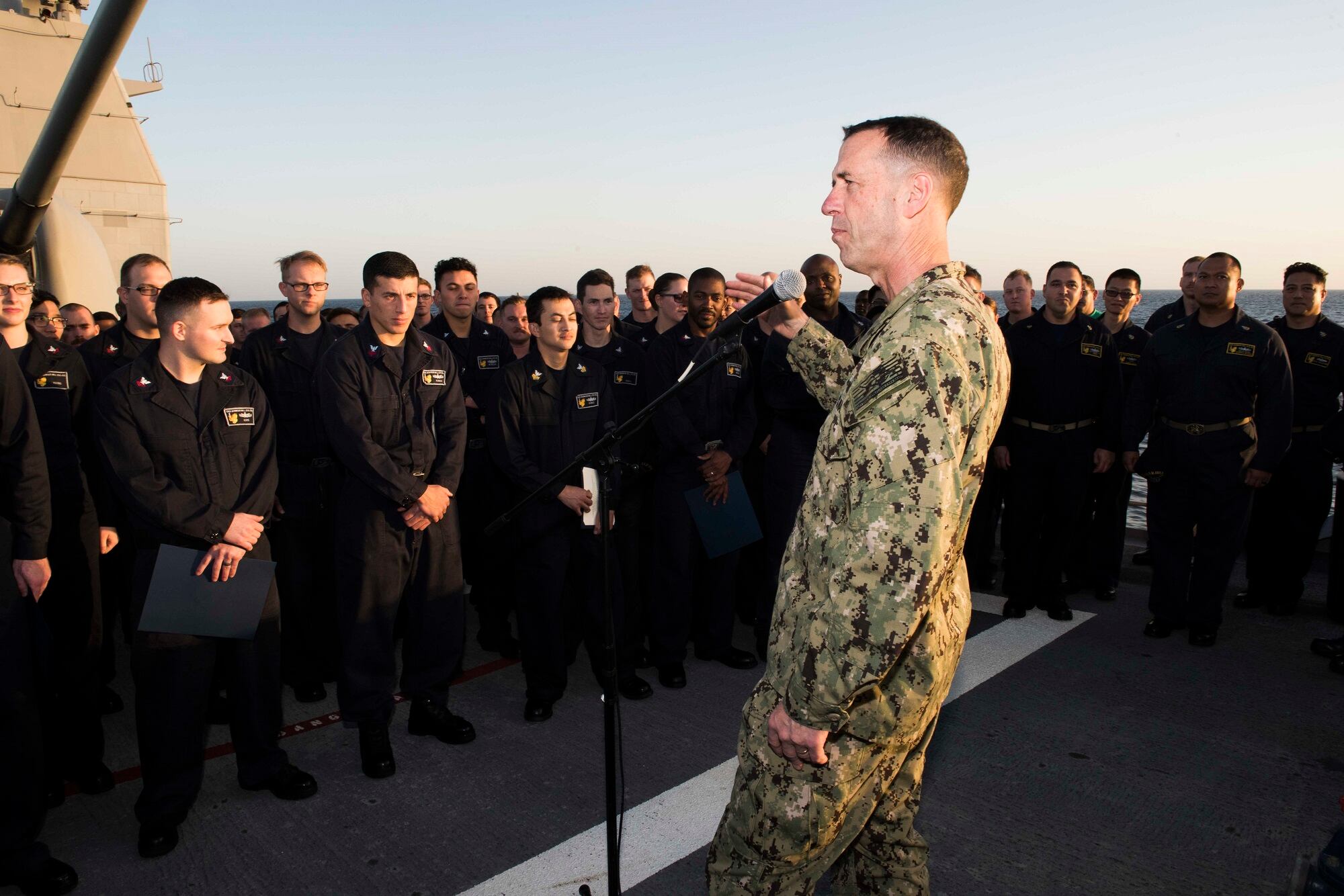While the Navy is steaming into a new world where it will once again be challenged on the seas by rival maritime forces, the new challenges will not be a rote rerun of the United States’ struggles for power against the Soviet Union during the Cold War, the Navy’s top officer said Thursday.
Although the recently released National Defense Strategy emphasizes countering an ascendant China and resurgent Russia, Chief of Naval Operations Adm. John Richardson said the layout of the globe has changed in the past 25 years.
Since that time, maritime traffic has increased 400 percent and fueled a doubling of gross domestic product worldwide, Richardson said during an event at the Heritage Foundation think tank.
Nearly all internet traffic crosses the world via undersea cables, and melting polar ice caps offer new resources and create new sea lanes, he said.
“A balanced strategy, a balanced strategic approach, is more important than ever,” Richardson said.
Meeting these upcoming needs will require the Navy to focus on several things, he said.
It must grow toward its 355-ship goal, while also modernizing existing ships, an effort that will involve advances in lasers and unmanned systems, among other things, Richardson said.
RELATED

The fleet must be better networked and manned by sailors who are trained in advanced skill sets, he said.
At the same time, the fleet must remain agile in its command and control and concepts of operations, Richardson said, while ensuring readiness does not fall by the wayside.
Richardson, a former Naval Reactors director, likened these six necessities to the nucleus of an atom.
If all parts are there, it is a pure element, he said.
“If you tear one out, you don’t have naval power, you have an isotope of naval power,” Richardson said. “These isotopes are sometimes unstable, they sometimes decay.”
He also took time to note that the Navy has operated with an enacted budget for only five of the past 18 months, due to so-called “continuing resolutions,” or CRs, a Congressional spending stopgap that is implemented when lawmakers don’t pass a budget.
Military leaders of all stripes have decried the recurring lack of a set budget and the havoc it wreaks for planning expensive initiatives, such as deep ship maintenance.
“When you have these sorts of fits and starts, these uncertainties, you can’t write a contract unless you’ve got the funding to back it up,” Richardson said. “Planning can get shortchanged, the materials don’t come at the optimum coast, workers are difficult to hire.”
“It really starts to have toxic effect,” he said.
Geoff is the managing editor of Military Times, but he still loves writing stories. He covered Iraq and Afghanistan extensively and was a reporter at the Chicago Tribune. He welcomes any and all kinds of tips at geoffz@militarytimes.com.





